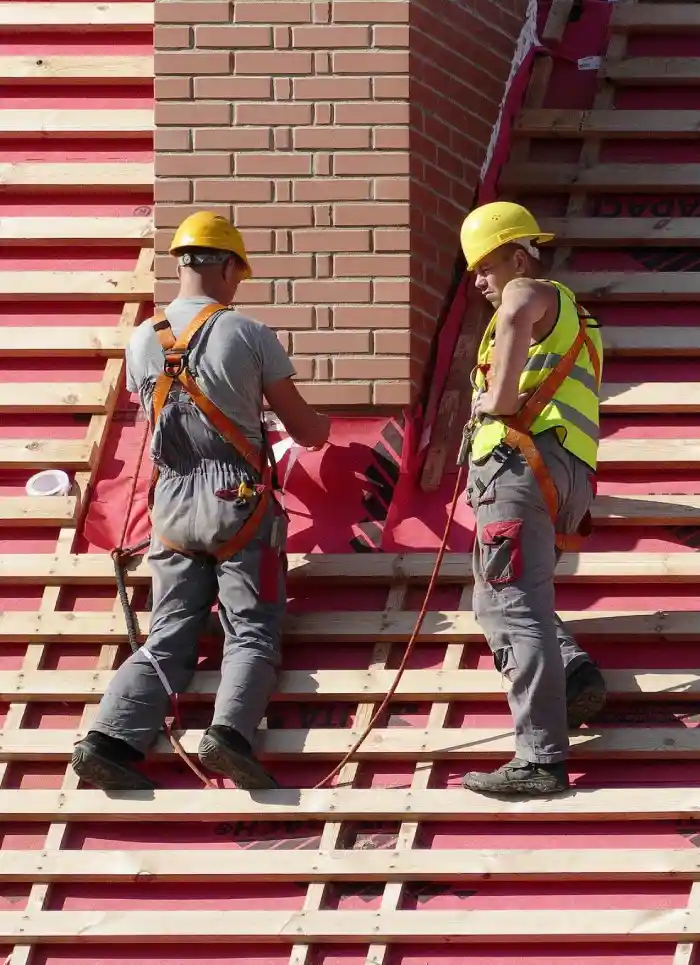Factors to Consider when Planning for a Commercial Roof Replacement
Replacing a commercial roof is a significant investment. There are more long-term effects on your business premises than just short-term costs.
Before committing, several important factors must be considered. Major factors include durability, material quality, and the contractor’s knowledge. For instance, ensuring you have a reliable contractor like J. Morse Roofing or visiting their website at jmorseconstruction.com can make a substantial difference in the overall success of your roofing project.
The best approach can also be determined by understanding what your building needs. By planning carefully, a commercial roof replacement can not only keep your building safe but also add significant value to it.
Choosing wisely could keep your business safe and running smoothly for years to come. Keep on reading!
Understanding Roofing Materials
Roofing materials vary in how long they last, how well they keep heat in, and how nice they look. Looking into PVC, TPO, EPDM rubber, and metal roofing can help you find the best balance between cost, durability, and functionality for your needs.
Assessing the Current Roof’s Condition
A professional can do a full check of the current roof and find common problems like water damage or insulation that isn’t working right. If you know how bad the damage is, you can decide whether a full replacement or a less extensive repair is better.
Choosing the Right Roofing Contractor
It is very important to hire a reputable roofing contractor for a successful roof replacement. Look for companies that have been around for a while and have good reviews, like Georgia Roof Advisors, which focuses on commercial roofing projects. Make sure they have a license, and insurance, and are willing to give you references.
Budget Considerations
Getting a new roof for a business is a big financial investment. Make sure that your budget includes not only the immediate costs of labor and materials but also any costs that come up that you didn’t expect during the project.
Compliance and Regulations
Keep up with the rules and codes in your area to make sure your new roof meets them. Some examples of this are fire safety standards, weight load limits, and energy efficiency rules.
Energy Efficiency and Sustainability
Cool roofing, green roofs, and solar integration are some of the new roofing technologies that can help your building use less energy. These options can help you reach your sustainability goals and lower your energy costs.
Project Timeline and Disruption
Carefully planning the timing of your roof replacement can help keep your business running as normally as possible. To pick the best time to do the work, think about how the weather changes with the seasons and how businesses run.
Warranty and Maintenance Plans
Finally, understand the warranties offered by your roofing material manufacturer and contractor. A comprehensive maintenance plan can also extend the life of your new roof, ensuring your investment is protected.
By considering these critical factors, you can ensure that your commercial roof replacement is executed smoothly, within budget, and with the best possible outcomes. Remember, a roof replacement is not just about covering your building today; it’s about investing in its future safety, efficiency, and sustainability.
Secure Your Investment with a Smart Commercial Roof Replacement Approach
Getting a commercial roof replacement is a big investment in the safety and longevity of your business. To make a decision that meets your business goals, you need to think about all the factors.
It can pay off to use good materials, hire a trustworthy contractor, and save energy. When planning, think about the budget and follow the rules. A professional replacement of your commercial roof will protect your investment and make it worth more.
Did you like this guide? Great! Please browse our website for more!

